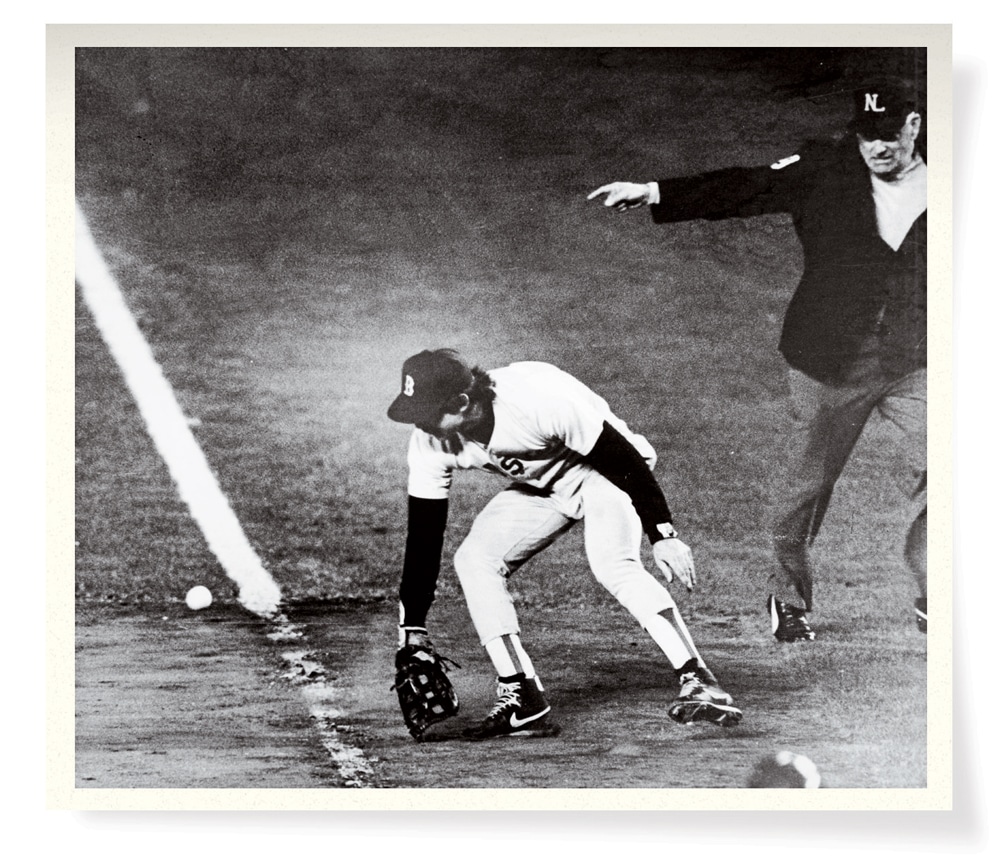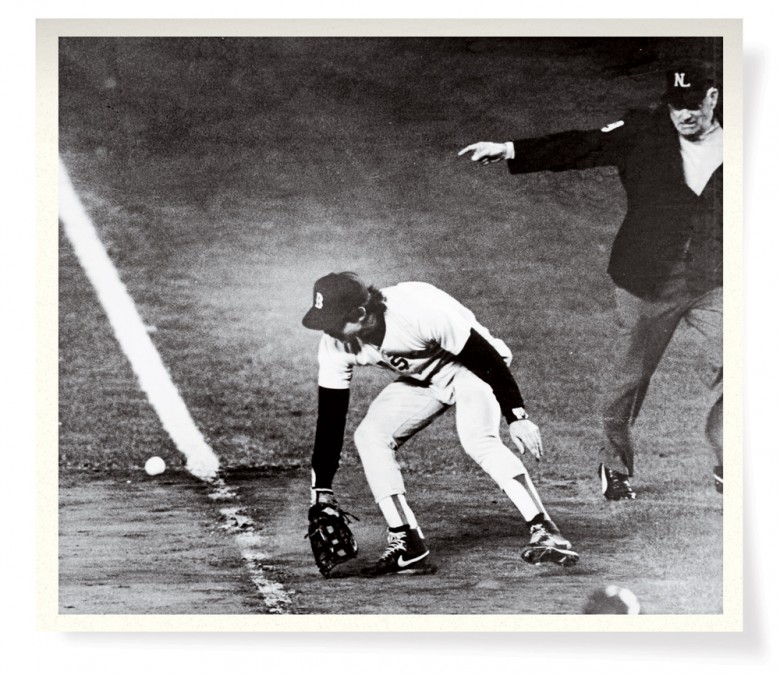Bill Buckner, October 25, 1986 | Up Close
Bill Buckner was an All-Star who played in two World Series. During 22 major-league seasons, he won a batting title and accumulated 2,715 hits. But his legacy is defined by the biggest play he didn’t make.

Red Sox hopes are dashed when Mookie Wilson’s grounder goes through first baseman Bill Buckner in Game 6 of the 1986 World Series.
Photo Credit : Boston Globe/Getty Images
Photo Credit : Heritage Auctions
In 1986, the Red Sox advanced to the World Series for just the fourth time since 1919. Before the series began, Buckner told an interviewer, “Your dreams are that you are going to have a great series, and win. And the nightmares are that you are going to let the winning run score on a ground ball through your legs …”
The New York Mets were heavily favored, but after five games, Boston led, three games to two, one win away from their first championship in 67 years. Game 6 was tied until Boston scored twice in the top of the 10th inning. Only three outs to go for Boston. The first two Mets batters in the 10th quickly popped out. The Shea Stadium scoreboard flashed a message prematurely congratulating the Sox.
Three singles and a wild pitch later, the score was tied, celebrations on hold. When Mets outfielder Mookie Wilson chopped a slow drive down the first-base line, Buckner, moving slowly on injured legs, got into position, but the ball rolled past his glove and into the outfield, letting the winning run score. Two nights later, the Mets won Game 7 and the World Series. The dreaded Curse of the Bambino not only lived on but had a new poster boy: Bill Buckner.

Photo Credit : Boston Globe/Getty Images
In 1999, when The Sporting News ranked the 25 greatest moments in baseball history, Buckner’s World Series miscue ranked eighth.
The Red Sox released Buckner in 1987, but he returned as a free agent in 1990. When he was first introduced, Red Sox fans gave him a standing ovation, which said, “We forgive you.”
Buckner, whose legs were shot, would retire midseason, but not before one last highlight-reel play. On April 25, Buckner blasted a drive past Los Angeles Angels outfielder Claudell Washington, who collided with the short right-field wall and toppled over it. Buckner limped around the bases for the only inside-the-park home run of his career.
In the movie Fever Pitch, a Red Sox fanatic wallows in misery after a breakup by watching the World Series play over and over. On Curb Your Enthusiasm, Buckner is redeemed when he catches a baby dropped from a burning building.
In 2008, during a hearing on the economic crisis, Representative John Yarmuth of Kentucky ridiculed former Federal Reserve chairman Alan Greenspan, Treasury Secretary John Snow, and SEC chairman Christopher Cox, saying, “I feel like I’m looking at three Bill Buckners here … The ball went through your legs.”
Actor Charlie Sheen purchased the “Buckner Ball” at auction in 1992 for $93,000. It was later purchased by songwriter Seth Swirsky, who loaned it to the Mets for display at their team museum. In 2012, Swirsky sold the ball for $418,250.
Buckner declined an invitation after the Red Sox finally won a championship in 2004, but three years later he received anotherfour-minute standing ovation, throwing out the first pitch to former teammate Dwight Evans, as the banner for Boston’s 2007 World Series title was unfurled.
Joe Bills
Associate Editor Joe Bills is Yankee’s fact-checker, query reader and the writer of several recurring departments. When he is not at Yankee, he is the co-owner of Escape Hatch Books in Jaffrey, NH.
More by Joe Bills

